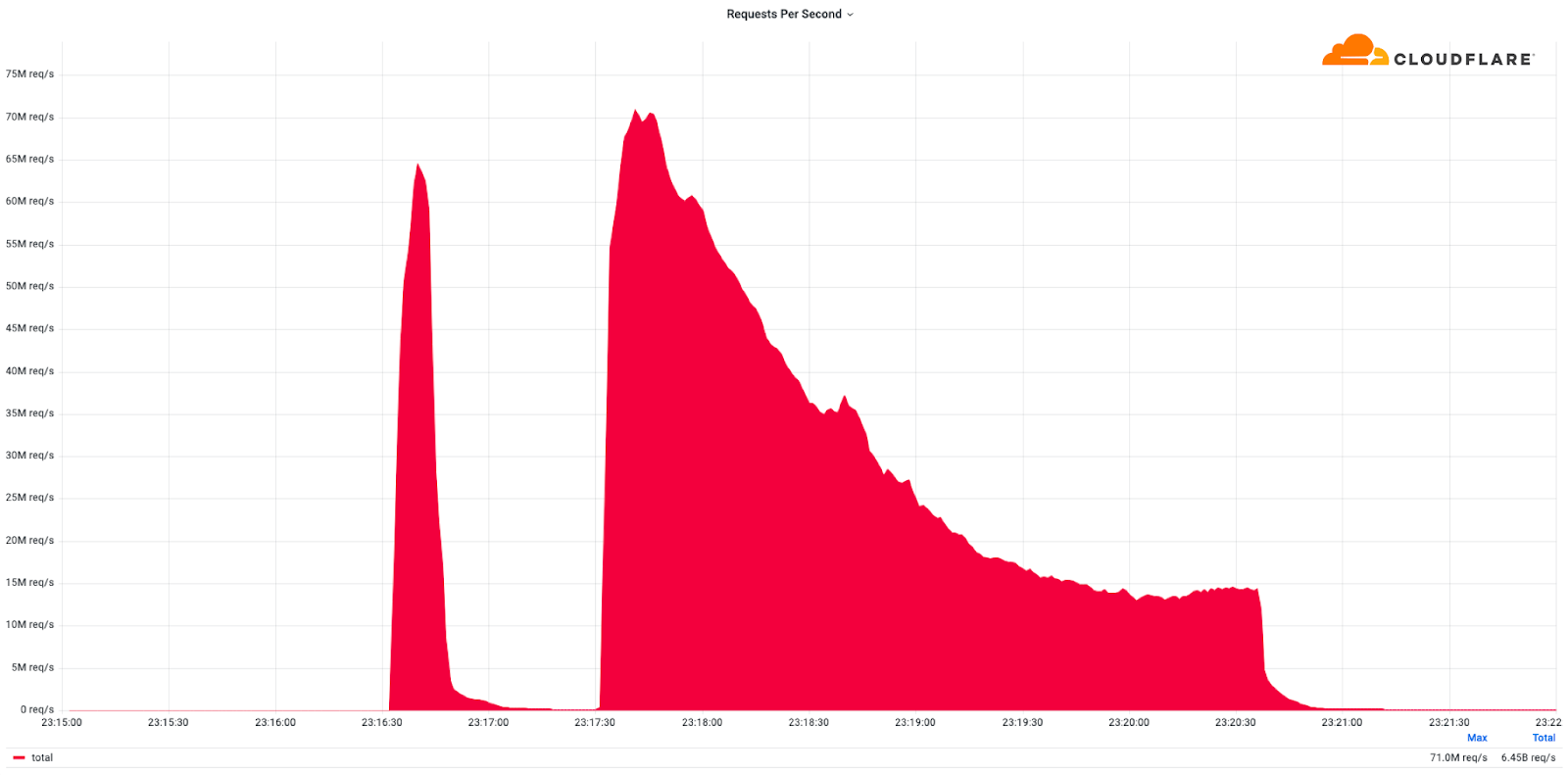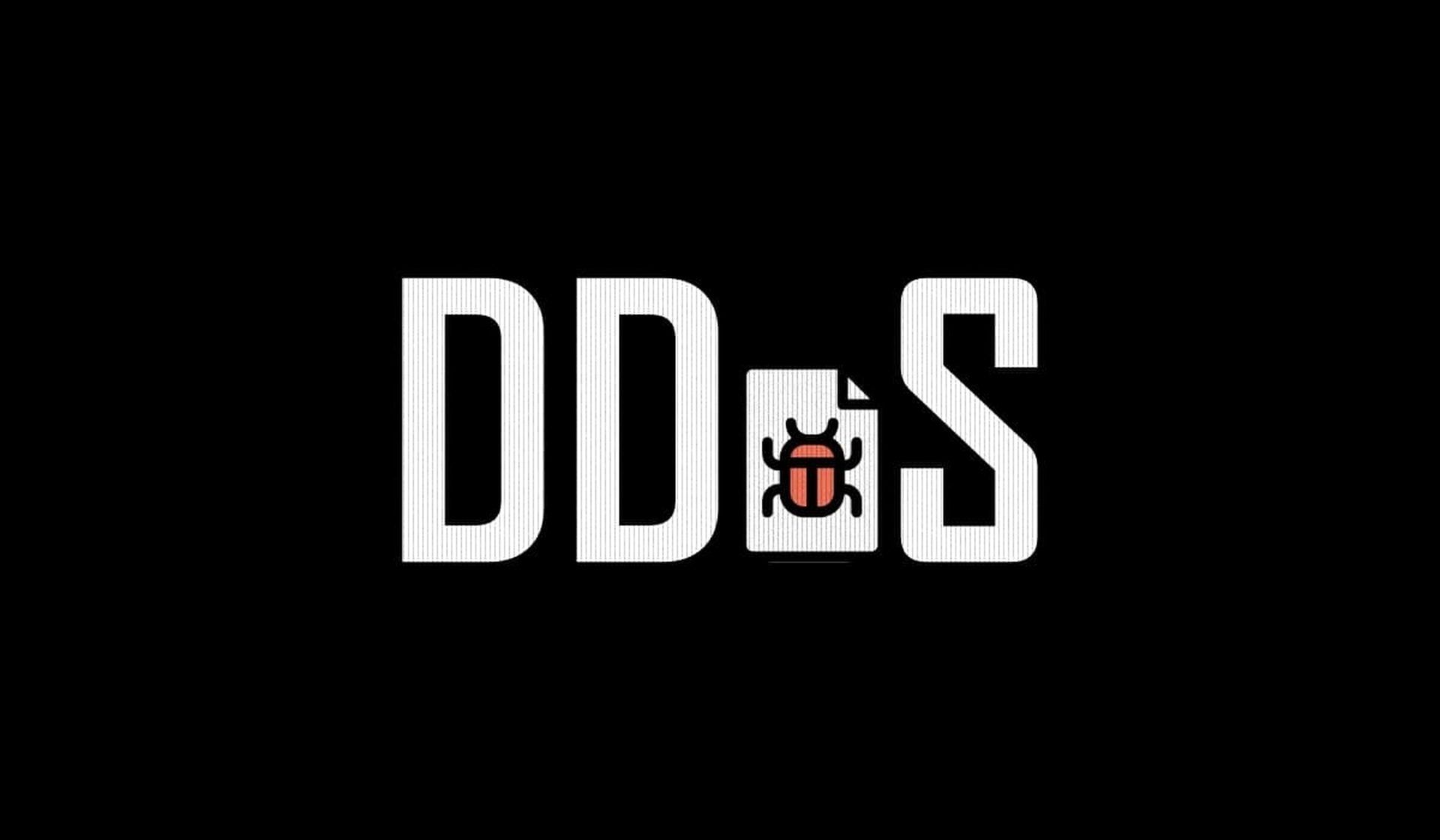This past weekend, Cloudflare was able to stop what it described as the largest volumetric distributed denial-of-service (DDoS) attack that has ever been launched.
Over the weekend, the company reported that it stopped not just one but a wave of dozens of hyper-volumetric distributed denial of service attempts directed at its clients.
Cloudflare’s Omer Yoachimik, Julien Desgats, and Alex Forster reported that the bulk of attacks reached a peak of between 50 and 70 million requests per second (RPS ), with the greatest topping 71 million RPS .
“This is more than 35% more than the previous reported record of 46M rps in June 2022, which was the previous recorded record for the greatest reported HTTP DDoS attack on record.”
 Over 30,000 IP addresses from several cloud providers were utilized in the launch of the assaults, which were directed at a wide variety of targets, such as hosting companies, cloud computing platforms, cryptocurrency firms, and gaming providers.
Over 30,000 IP addresses from several cloud providers were utilized in the launch of the assaults, which were directed at a wide variety of targets, such as hosting companies, cloud computing platforms, cryptocurrency firms, and gaming providers.
Cloudflare has been in trouble with DDoS attacks for a while
The current DDoS threat report published by Cloudflare depicts a depressing picture, which is supported by the fact that DDoS attacks are becoming increasingly stronger and more frequent.
- The amount of HTTP DDoS attacks increased by 79% year-over-year
- The number of volumetric attacks exceeding 100 Gbps grew by 67% quarter-over-quarter (QoQ)
- The number of attacks lasting more than three hours increased by 87% QoQ

That was an increase of around 80 percent more than the previous record, an HTTPS DDoS of 26 million RPS that Cloudflare handled in June.
Since 2021, when various botnets started utilizing powerful devices to strike targets with millions of requests per second, the magnitude of volumetric DDoS attacks has slowly increased and has been steadily increasing since then.





